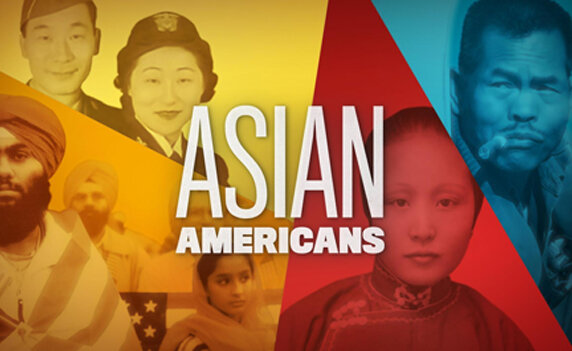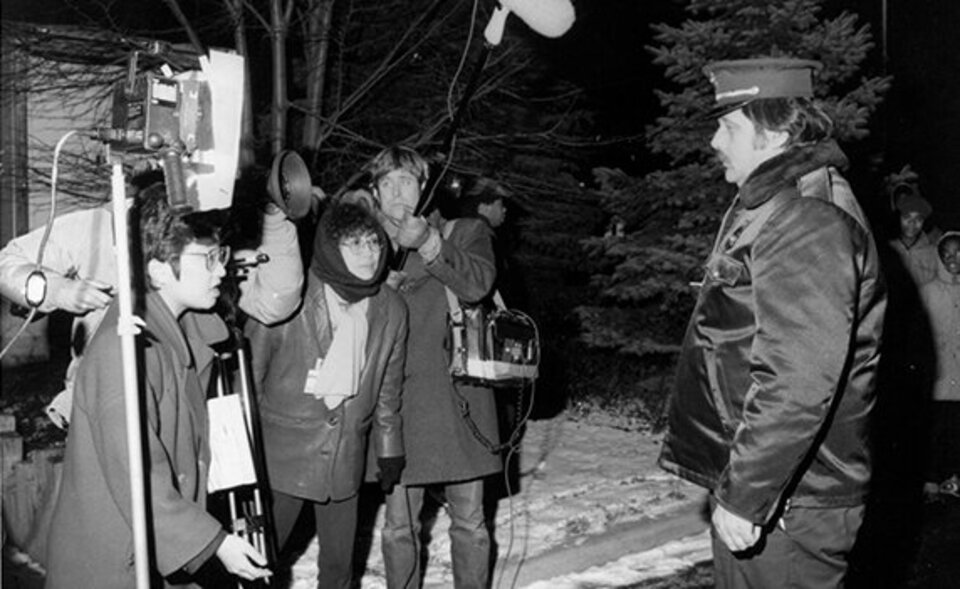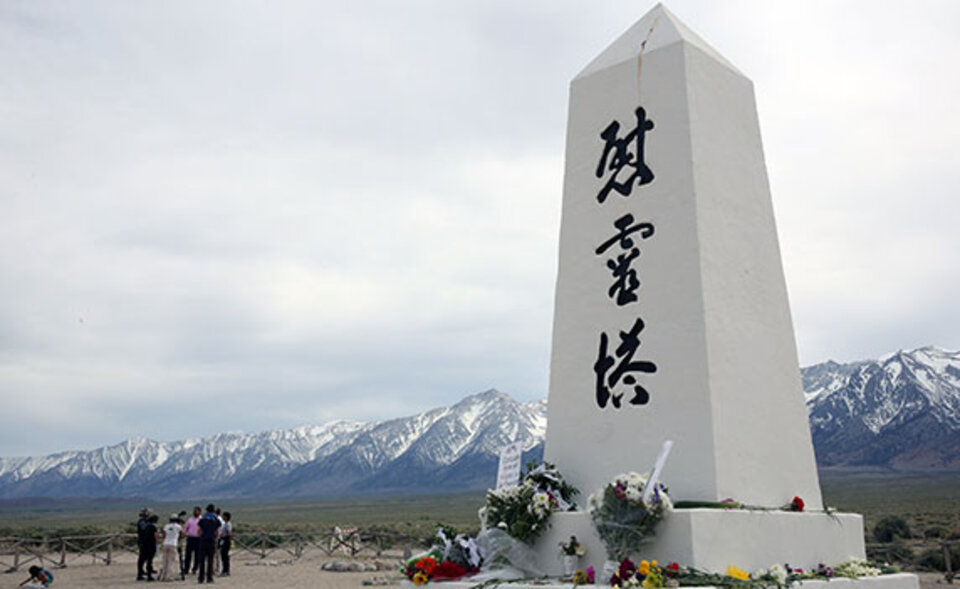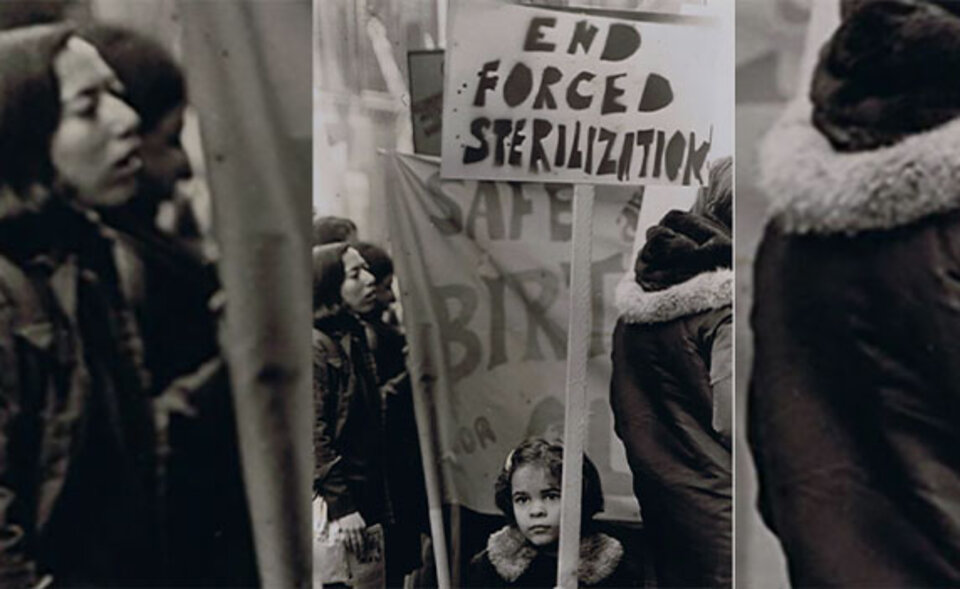Content

In 2022, the Institute for Ethnic Studies celebrated 50 years of transformative teaching about race, ethnicity, and social justice at the University of Nebraska—along with our decades of original research in the field and committed outreach to BIPOC communities in Lincoln and the greater region.
Our outstanding line-up of lectures by star academics and documentary screenings was sponsored by the Office of the Chancellor and the College of Arts and Sciences.
Schedule of Events
Monday, March 28
Screening
Asian Americans Episode 1, “Breaking Ground”
From the PBS docuseries, series producer Renee Tajima-Peña
4:00 p.m. CT, Lied Commons
Screening
Who Killed Vincent Chin?
Documentary by Renee Tajima-Peña and Christine Choy
5:00 p.m. CT, Lied Commons
Tuesday, March 29
Screening
Asian Americans Episode 2, “A Question of Loyalty”
From the PBS docuseries, series producer Renee Tajima-Peña
4:00 p.m. CT, Lied Commons
Screening
Skate Manzanar
Documentary short by Renee Tajima-Peña
5:00 p.m. CT, Lied Commons
Lecture
Dr. Norma Elia Cantú
Honoring Ralpha Grajeda
“A Pilgrimage: Fifty Years of Ethnic Studies at UNL”
5:30 p.m. CT, Zoom
Wednesday, March 30
Screening
Asian Americans Episode 3, “Good Americans”
From the PBS docuseries, series producer Renee Tajima-Peña
4:00 p.m. CT, Lied Commons
Lecture
Dr. Daniel Heath Justice
“Blood, Nation, Kin: Pasts and Futures of Indigenous Literary Studies”
5:30 p.m. CT, Zoom
Thursday, March 31
Screening
Asian Americans Episode 4, “Generation Rising”
From the PBS docuseries, series producer Renee Tajima-Peña
4:00 p.m. CT, Lied Commons
Lecture
Dr. Keisha N. Blain
“Black Women and the Struggle for Human Rights”
6:30 p.m. CT, Zoom
Friday, April 1
Lecture
Renee Tajima-Peña
“Why Asian American Studies Matters”
12:00 p.m. CT, Zoom
Screening
Asian Americans Episode 5, “Breaking Through”
From the PBS docuseries, series producer Renee Tajima-Peña
4:00 p.m. CT, Lied Commons
Monday, April 4
Screening
No Más Bebés
Documentary by Dr. Virginia Espino and Renee Tajima-Peña
4:00 p.m. CT, Lied Commons
Lecture
Dr. Virginia Espino
“‘Para que me Recuerden’: Acts of Love for Family and Community”
Following the 4:00 p.m. CT screening of No Más Bebés; available on Zoom and screened in Lied Commons
Lectures by Visiting Distinguished Professors

Dr. Norma Elia Cantú
Norma Elia Cantú is Norine R. and T. Frank Murchison Distinguished Professor of the Humanities in the Modern Languages and Literatures department at Trinity University. She received her bachelor’s and master’s degrees from Texas A&I at Laredo and Kingsville, respectively, and her Ph.D. in English from the University of Nebraska–Lincoln. At Laredo State University, later renamed Texas A&M International University, she taught and served as Chair and Interim Dean. She was a senior arts administrator with the National Endowment for the Arts in Washington, DC and was Acting Chair of the Chicano Studies Research Center at the University of California at Santa Barbara. Her scholarship focuses on issues of borders and boundaries, whether in academic disciplines or the geopolitical borderlands of Mexico and the United States, all through a Chicana feminist theoretical lens.
“A Pilgrimage: Fifty Years of Ethnic Studies at UNL”
5:30 p.m. CT, Zoom

Dr. Daniel Heath Justice
Dr. Daniel Heath Justice is a Colorado-born citizen of the Cherokee Nation and Professor of Critical Indigenous Studies and English Language and Literatures at the University of British Columbia. He received his B.A. from the University of Northern Colorado and his M.A. and Ph.D. from the University of Nebraska-Lincoln. He spent ten years as a faculty member in the Department of English at the University of Toronto in Haudenosaunee and Anishinaabe territory, where he was also an affiliate of the Aboriginal Studies Program. His work in Indigenous literary studies takes up questions and issues of kinship, belonging, sexuality, personhood, and nationhood, with increasing attention to the intersections between Indigenous literatures, speculative fiction, and other-than-human peoples.
“Blood, Nation, Kin: Pasts and Futures of Indigenous Literary Studies”
5:30 p.m. CT, Zoom

Dr. Keisha N. Blain
Dr. Keisha N. Blain is an award-winning historian of the 20th century United States with broad interests and specializations in African American History, the modern African Diaspora, and Women’s and Gender Studies. She is an Associate Professor of History at the University of Pittsburgh, the president of the African American Intellectual History Society, and a columnist for MSNBC. She is currently a fellow at the Carr Center for Human Rights Policy at Harvard University and a member of the School of Social Science at the Institute for Advanced Study. She has published extensively on race, gender, and politics in both national and global perspectives. She is the author of the multi-prize-winning book Set the World on Fire: Black Nationalist Women and the Global Struggle for Freedom (2018) and the #1 New York Times Bestseller Four Hundred Souls: A Community History of African America, 1619-2019 (2021), edited with Ibram X. Kendi.
“Black Women and the Struggle for Human Rights”
6:30 p.m. CT, Zoom

Renee Tajima-Peña
Renee Tajima-Peña is an Academy Award-nominated filmmaker and multi-media producer. Her films explore themes of immigration, race, ethnicity, gender, and social justice. She was series producer/showrunner of PBS's Asian Americans, a ground-breaking 5-hour docuseries collaboration of Asian American filmmakers, scholars, community, and public media. Tajima-Peña's films have screened at the Cannes Film Festival, New Directors/New Films, Sundance Film Festival, SXSW, the Whitney Biennial, and venues around the world. She is Professor of Asian American Studies at UCLA, where she is also the Director of the Center for EthnoCommunications and the holder of the Alumni and Friends of Japanese American Ancestry Endowed Chair.
“Why Asian American Studies Matters”
12:00 p.m. CT, Zoom

Dr. Virginia Espino
Virginia Espino is an oral and public historian whose research focuses on health activism, motherhood and the varied uses of public space. She earned her Ph.D. from Arizona State University writing about population control politics and reproductive injustice during the 1970s. As the Series Leader for Latina and Latino History at UCLA’s Center for Oral History Research she developed oral history projects around civil rights struggles that document the role of the California Latina/o community in creating social change and make up an invaluable archival collection accessible to scholars and the public at large. Her investigation of the history of coercive sterilization at the Los Angeles-USC Medical Center provided the impetus for the documentary film, No Más Bebés/No More Babies, for which she is a Producer and Lead Historian.
“‘Para que me Recuerden’: Acts of Love for Family and Community”
Following the 4:00 p.m. CT screening of No Más Bebés; available on Zoom and screened in Lied Commons
Documentary Screenings

Asian Americans
This 5-hour documentary film series, produced by Renee Tajima-Peña, delivers a bold, fresh perspective on a history that matters today, more than ever. As America becomes more diverse yet more divided, how do we move forward together? Told through intimate and personal lives, the series casts a new lens on how one group of Americans, who were long excluded and considered outsiders, have played a central role in shaping the nation’s story. Asian Americans premiered on PBS in May of 2020. The series is narrated by Daniel Dae Kim and Tamlyn Tomita, episode producers are S. Leo Chiang, Geeta Gandbhir and Grace Lee.
Episode 1: “Breaking Ground”
Monday, March 28, 4:00 p.m. CT, Lied Commons
In an era of exclusion and U.S. empire, new immigrants arrive from China, India, Japan, the Philippines and beyond. Barred by anti-Asian laws they become America’s first “undocumented immigrants,” yet they build railroads, dazzle on the silver screen, and take their fight for equality to the U.S. Supreme Court.
Episode 2: “A Question of Loyalty”
Tuesday, March 29, 4:00 p.m. CT, Lied Commons
An American-born generation straddles their country of birth and their parents’ homelands in Japan and Korea. Those loyalties are tested during World War II, when families are imprisoned in detention camps, and brothers find themselves on opposite sides of the battle lines.
Episode 3: “Good Americans”
Wednesday, March 30, 4:00 p.m. CT, Lied Commons
During the Cold War years, Asian Americans are simultaneously heralded as a Model Minority and targeted as the perpetual foreigner. It is also a time of bold ambition, as Asian Americans aspire for the first time to national political office and a coming culture-quake simmers beneath the surface.
Episode 4: “Generation Rising”
Thursday, March 31, 4:00 p.m. CT, Lied Commons
During a time of war and social tumult, a young generation fights for equality in the fields, on campuses and in the culture, and claim a new identity: Asian Americans. The war’s aftermath brings new immigrants and refugees who expand the population and the definition of Asian America.
Episode 5: “Breaking Through”
Friday, April 1, 4:00 p.m. CT, Lied Commons
At the turn of the new millennium, the national conversation turns to immigration, race, and economic disparity. As the U.S becomes more diverse, yet more divided, a new generation of Asian Americans tackle the question, how do we as a nation move forward together?

Who Killed Vincent Chin?
Monday, March 28, 5:00 p.m. CT, Lied Commons
In June of 1982, a 27 year-old Chinese American draftsman, Vincent Chin, was celebrating his bachelor party at a Detroit area strip club when he encountered a foreman at Chrysler Motors named Ronald Ebens. According to some witnesses, Ebens mistook Chin for a Japanese man, and hurled ethnic insults, blaming him for the loss of jobs in the then-depressed American auto industry.
By the end of the night Ron Ebens, aided by his stepson Mike Nitz, had bludgeoned Vincent Chin to death with a baseball bat. After Ebens and Nitz pleaded guilty to manslaughter and were each sentenced to three-year probation and $3,000 fine, the Asian American community was outraged. Who Killed Vincent Chin? chronicles the historic campaign for Justice for Vincent Chin spearheaded by his mother Lily, Detroit’s American Citizens for Justice, and a nationwide coalition of activists. Nominated for an Academy Award, Who Killed Vincent Chin? became a landmark in Asian American filmmaking and a classic in US independent cinema.

Skate Manzanar
Tuesday, March 29, 5:00 p.m. CT, Lied Commons
Produced in collaboration with Martin Wong and Michael Louie of the culture and politics zine Giant Robot, Renee Tajima-Peña’s documentary short Skate Manzanar is a meditation on skateboarding, civil liberties, and memory. Skate Manzanar was filmed at the cusp of the new millennium, 60 years after Japanese Americans were forced from their homes on the west coast and imprisoned in concentration camps during World War II. Over 10,000 were incarcerated at the Manzanar camp in the California desert, and though the site looks abandoned, the history is very present. The skateboarding depicted in the film represents Martin Wong and Michael Louie’s artistic interpretation of the site and its intergenerational reach. Skate Manzanar was originally produced for the multi-media performance piece “Amnesia,” created by the artist Roger Shimomura.

No Más Bebés
Monday, April 4, 4:00 p.m. CT, Lied Commons
No Más Bebés is the story of immigrant mothers who were pushed into sterilizations while giving birth at the Los Angeles County-USC Medical Center during the 1970s. Alongside intrepid young Mexican American lawyers, and armed with hospital records secretly gathered by a whistle-blowing doctor, the mothers faced public exposure and stood up to powerful institutions in their fight for reproductive justice. Their campaign galvanized the early Chicana feminist movement and led to the landmark lawsuit Madrigal v. Quilligan. Produced and directed by Renee Tajima-Peña, produced by Virginia Espino.